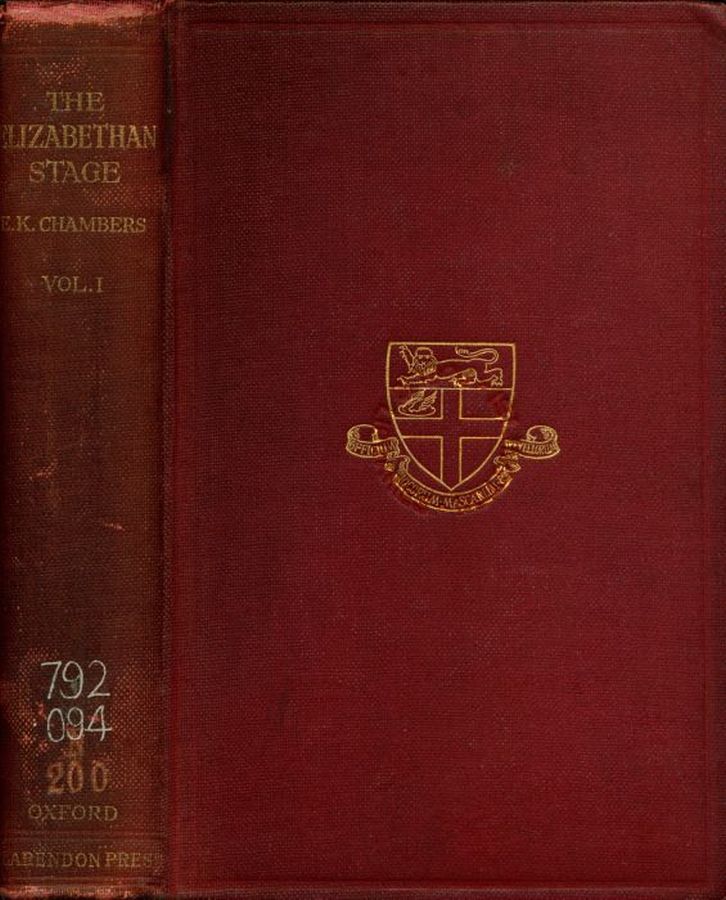
THE ELIZABETHAN STAGE
VOL. I
Oxford University Press
London Edinburgh Glasgow Copenhagen
New York Toronto Melbourne Cape Town
Bombay Calcutta Madras Shanghai
Humphrey Milford Publisher to the UNIVERSITY

Emery Walker ph. sc.
Wedding Mask of Sir Henry Unton
National Portrait Gallery
THE ELIZABETHAN STAGE
BY E. K. CHAMBERS. VOL. I
OXFORD: AT THE CLARENDON PRESS
M.CMXXIII
Printed in England
PREFACE
In 1903 I explained the origin of The Mediaeval Stageout of preliminary investigations for a little book on Shakespeare.That little book is still unwritten, and perhaps itwas only a mirage, since working days have their term, andall that I can now offer, after an interval of twenty years,is another instalment of prolegomena. It has been in hand,more or less, throughout that period, which now endsfelicitously with the tercentenary of the First Folio. Butit has often been laid aside for other literary diversions, andstill more often through the preoccupations of a life mainlyconcerned with activities remote from letters. As a result,I have constantly had to take account of new materialfurnished by the research or the speculations of others;and I only hope that in the process of revision I havesucceeded in achieving a reasonable completeness of statementand a reasonable consistency in the conclusions ofchapters drafted at very different dates.
Much in these volumes is of course mere archaeology, butthe historian may find some interest in the development ofthe stage as an institution, and in the social and economicconditions which made such a development possible. MyFirst Book is devoted to a description, perhaps disproportionate,of the Elizabethan Court, and of the ramificationsin pageant and progress, tilt and mask, of that instinct forspectacular mimesis, which the Renaissance inherited fromthe Middle Ages, and of which the drama is itself the mostimportant manifestation. The Second Book gives an accountof the settlement of the players in London, of their conflict,backed by the Court, with the tendencies of Puritanism, andof the place which they ultimately found in the monarchicalpolity. To the Third and Fourth belong the more pedestrian[viii]task of following in detail the fortunes of the individualplaying companies and the individual theatres, with suchfullness as the available records permit. The Fifth dealswith the surviving plays, not in their literary aspect, whichlies outside my plan, but as documents helping to throwlight upon the history of the institution which producedthem. I have not for the most part carried my investigationsbeyond the death of Shakespeare, and although I havesometimes regretted that I did not push on to the closingof the theatres, the decision not to do so has long beenirretrievable.
Obviously I am treading